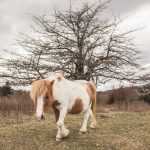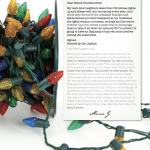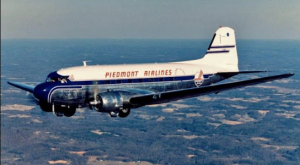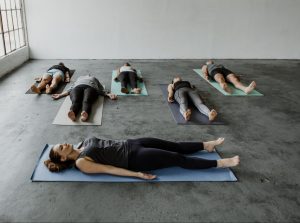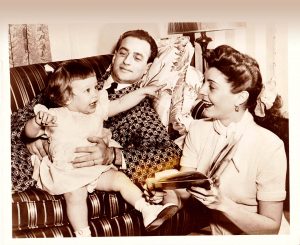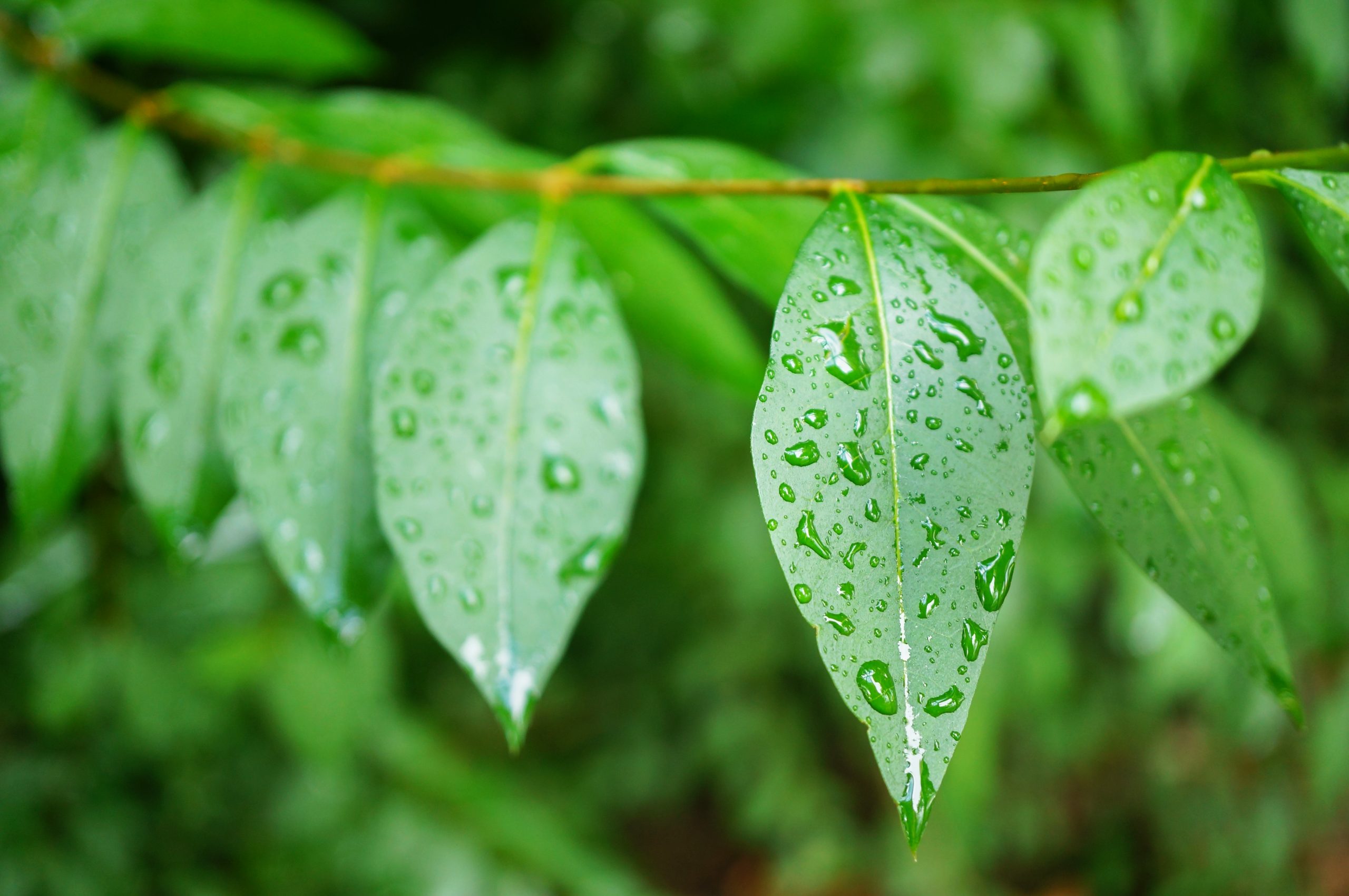
A Little Rain Must Fall, and It’s a Good Thing
By Jim Dodson
It’s raining this morning, a Sunday in April.
Few things, meteorologically speaking, make me happier.
Sunday is my favorite day, soft rain a gardener’s blessing. Together, rainy Sundays make the world a smaller, quieter place, encouraging some hardworking folks — my beautiful wife, let’s say — to burrow a bit longer under covers before she’s roused by the muddy-pawed dogs to mount one of her famous Sabbath day breakfasts, with time allowed for good behavior to read the morning paper front to back, to talk of small things and savor a peace that passeth weekday understanding.
For me, rainy Sundays stir involuntary memories, much the way an oven-warm madeleine did the poet Proust.
The steady drip of my very green terrace garden reminds me of solitary days of childhood living in a succession of the small sleepy Southern towns where my father worked at the newspaper and my brother and I were pretty much left to roam the surrounding world untethered. We were rarely inside the house, boxcar children growing wild.
First there was Gulfport, where my mother and I would walk the broad flat beach in the evening collecting interesting shells and looking out for approaching storms over the vast Gulf of Mexico, a body of water that was often as still as bathwater but reportedly coughed up more diverse kinds of shells than any other ocean. A mountainous press foreman named Tiny Earl, who worked at the small newspaper my father owned with a silent partner, informed me that we lived in “Hurricane Alley” and predicted that any day now a “killer” hurricane could churn up out of the Gulf to wreak incredible devastation.
I was thrilled at this prospect and soon wrote off to the National Geographic Society for an official Hurricane Watch Kit that included a special map of hurricane patterns and a preparation guide, plus membership card and a pair of special yellow binoculars bearing the logo of the NGS.
A few impressive storms did boil out of the Gulf during the three years we lived across the street from the state beach, bringing curtains of rain and wind and lightning but disappointingly no named hurricanes that I could later declare that I not only witnessed but somehow survived. That distinction would come half a century later when Hurricane Katrina wiped away that whole section of the coast and probably our old house with it.
Still, my earliest memory of life save for those evening shell hunts with my pregnant mother was the sound of quiet Sunday morning rain dripping from the eaves of our house as I sat in a cardboard moving box on its broad front porch leafing through illustrated adventure books I could almost read.
My mother lost her baby the same week my father lost his newspaper owing to a partner who favored fancy linen suits and cleaned out the paper’s bank accounts before running off to Mexico or Cuba after his Kiwanis luncheon with the shapely cigarette girl from a downtown hotel.
We wound up for eighteen months living by Greenfield Lake in Wilmington, where the weather either seemed blazingly hot and sunny or moodily cool and rainy. I learned to swim in the little lagoon by the bridge to Wrightsville Beach on a rainy Sunday after church, dog paddling about while a sudden shower freckled the still surface of the water. I also learned to ride a bicycle that year, 1958, pedaling shakily along the oyster-shelled foot paths of Airlie Gardens and the paved sidewalks around Greenfield Lake, my tires singing on the wet pavement.
After my mother’s second miscarriage, we spent a strangely magical year living in Florence, South Carolina, where my father worked at the newspaper and my mother was nursed back to health by a kind and wonderful Black woman named Jesse May Richardson, who looked after my brother and me during the week and always checked in on us after her own church services on Sunday.
Jesse May taught my mother about garden plants and how to cook “real” Southern food, and me to feet dance by lifting me up by my skinny white-boy arms and lowering me onto her own sensible shoes, shimmying us around the floor while dinner cooked on the stove and gospel music played from her transistor radio sitting in the kitchen window. It was Miss Jesse May who first informed me that rain is holy, the Lord’s way of making the world grow and prosper, so never complain about a rainy day, one of many things she told me — often quite bossily at times — including that no civilized child ever removes his shoes in a public place, certainly not a grocery store, no matter how hot the day outside happens to be or how cool the tiled floor underfoot.
It rained the Sunday we went to see Miss Jesse May in the colored wing of the Florence Memorial Hospital. My parents refused to tell my brother and me what was wrong with her. We came straight from church. It was midwinter, gray and misty. My mother took her bright spring flowers from the florist shop near the newspaper, and she seemed pleased we’d come.
Her funeral a week later was held at a Baptist Church, on a bright sunny day. I believe that was Saturday. On Sunday it rained. My mother said that was just Miss Jesse May watering our garden. Within weeks, we moved home to Greensboro, where I joined Miss Chamberlain’s second grade class at Braxton Craven Elementary. That week we were asked to bring a poem to class and read it aloud. I chose Robert Louis Stevenson’s poem “Rain,” a simple ditty lodged in my head to this day.
The rain is raining all around,
It falls on field and trees,
It rains on the umbrellas here,
And on the ships at sea.
His message seems clear. Rain feeds the Earth and oceans and connects us all to each other. But Miss Jesse May was right, too. Rain is holy, perhaps the holiest of waters, blessed by a much higher authority than a mere priest in robes, the farmer’s best friend, the poet’s perfect metaphor. Why else is water mentioned just thirty-nine words into the Book of Genesis, even before the Almighty made light to separate the day from night, even before He made land and stars, the beasts of the field, the birds of the sky and man. We bathe in water, we baptize new life with it; rainwater washes away dust, cleanses city windows and the windows of the soul; makes the world green and forever new.
In Judaic, Moslem and even some Christian beliefs, Sunday is considered the first day of the week. In broader Christianity, however, it is the Lord’s Day of rest, a final day of the week, Sabbath day: meant to be honored by doing little more than resting and making prayers of Thanksgiving. The name “Sunday” derives from pre-Christian Hellenic astrology and was considered to be the “Day of the Sun” celebrated by ancient Romans, a pagan symbol of light eventually adopted by emerging Christian culture. For this reason, many early Christian churches were constructed so worshippers faced East, the direction of the rising sun.
In 312, after Christ reportedly appeared to him in a dream the night before a battle against his leading rival, Rome’s Emperor Constantine officially legalized Christianity and, legend holds, converted to the new religion himself. Nine years later he decreed the Day of the Sun to be a day of rest for everyone, extending a lone exemption to gardening types.
“Persons engaged in agriculture may freely and lawfully continue their pursuits; because it often happens that another day is not so suitable for grain-sowing or vine-planting; lest by neglecting the proper moment for such operations the bounty of heaven should be lost.”
Seventeen centuries later, any self-respecting weekend gardener fully grasps the Emperor’s logic on the matter, which explains why on rainy Sunday mornings, lest the bounty of heaven be lost, I’m prone to skip church in favor of getting gloriously wet and dirty in my garden.
Besides, as the Dorothy Frances Gurney ditty that stood on a standard in my mother’s voluptuous peonies for decades sagely reminded, one is nearer God’s heart in a garden than anywhere else on the Earth.
I take that fully to heart, aiming to wring every earthly pleasure possible out of a long rainy Sunday. Following garden work and a nice hot shower comes a guilt-free nap, time with a good book or an old movie, an evening walk with wife and dogs and an early supper — in short, the perfect way to start, or conclude, a busy week.
If one happens to drift off to sleep with the sound of soft rain purling in the gutters the way it did in those far-away years on a porch, with the faintest rumble of distant thunder hinting at hurricanes that never quite arrive, all the better. Such is a true bounty of Heaven.
Reprinted with permission from the May 2016 issue of PineStraw Magazine.

